I finished reading Mike Davis’s “The Monster at the Door” this weekend. An impressive book, extremely informative, and one that definitely gets an immediate entry into the “Sky is Falling” Hall of Fame. Sheesh! The biggest question I came away with is not if or how there will be a global pandemic that will kill (maybe hundreds of) millions, but why hasn’t it already started? That’s a question plaguing a number of scientists and researchers Davis sources in his book, too.
Davis is at his best when he puts the obvious terror of a super lethal pandemic into the context of the banal trajectory of capitalist development: the ever increasing densities of humans and animals, overlapping in turn with what’s still left of the wild, often mixed in our urbanized concentrations. An interesting insight I didn’t already know: apparently HIV has been definitively traced to humans eating “bush meat” in Africa (i.e. chimpanzees in this case). The crashing fisheries along the coasts of Africa and Asia are leading to a huge increase in industrialized meat making (highly concentrated factories of chickens and pigs) AND rampant exploitation of remaining mammals in the wild, hence more “bush meat.” The radical expansion of hosts for influenza viruses goes hand in hand with this, not to mention other lesser known viral agents in the bush meat (like HIV); all of this new mixing of humans and animals and diseases, combined with the generally underemphasized abysmal state of mega-slums in most parts of the world, set the stage for an inevitable pandemic. Throw in the systematic destruction of existing public health infrastructure, and the abject failure to take seriously the need for a global approach to public health, and you can’t feel anything but a bit helpless in the face of what we can hardly avoid… pandemic lethality as a natural event.
I already knew that the avian flu was something to take seriously. I blogged about it in passing some months ago. There are a number of worthy sites to keep track of, where bloggers and news outlets are tracking the paths of various flu outbreaks. The H5N1 site seems to be a guy up in Vancouver who is doing a great job of sifting through enormous daily flows of information. Bird Flu Today is a more graphic heavy digest of news from near and far. And the Flu Wiki is an attempt to make full use of the new “power” of the wiki form to bring together hundreds of observers and analysts to share the latest on this worrisome topic.
In one of those whimsical and mordant displays of dark humor that daily life is so good at producing, I spent my afternoon yesterday at the 5th annual Green Fest here in San Francisco. It is unquestionably the most self-congratulatory event you can attend hereabouts. Everyone is just glowing with self-righteous moralism, perusing in the mall of correct shopping, getting endlessly patted on the back by other attendees, speakers, and vendors.
In spite of that rather sugary overcoat of glistening superiority, I somehow find my way to enjoy various moments. Regardless of the overarching saccharine tone there really are a lot of folks there who are doing interesting work, and it’s a great opportunity to meet and set up further, deeper encounters (as I did following the Urban Permaculture workshop, featuring some folks from the East Bay doing really great local work). I got into a major argument with a couple of friends who socratically took the position that the incremental achievements of various entities in the hall were not just worthy, but essential. I stuck to my usual position: if you don’t break with the logic of the market and profit, your (presumed) good work will eventually collapse when the morality you pursue inevitably disconnects from profitability.
The day’s first speaker was William McDonough, co-author of Cradle to Cradle, and a visionary architect and designer. He gave a very polished and entertaining speech, emphasizing the need to move beyond the narrow measurements of capitalist economics to include long-term ecology and equity concerns. He charted it out in a variety of ways, and showed us a bunch of slides, some of which brought audible gasps of pleasure to the 2000 people in the audience. There was much to support in his analytical frame and proposals to shift our design thinking. And he’s doing good work, but that’s also the rub. Because finally he is a high-end designer and architect and spends a fair amount of time selling his services to the very people who are destroying the world.
Good, you might say. Isn’t it better that McDonough’s firm get the contract to “green” the Ford Motor Co.’s River Rouge factory island in Dearborn, Michigan, than having them go on doing things the same old way? As I said to my arguing friend, who can argue against the position that ‘better’ is better than ‘worse’? So I’m not against putting green roofs on factories, but we can hardly fail to notice that it’s STILL a fucking auto plant! It’s still fundamentally making a HUGE net contribution to everything that’s wrong with this world! And the people working there are not invited to decide what ELSE they might do with their technological and social resources, or even just their own time. Nor are the surrounding communities.
The point was further emphasized at the great climax to McDonough’s talk when he put up a photo of himself and Deng Xiaoping’s granddaughter holding a “memorandum of agreement” which purported to commit China to an ecological sound development agenda. Then he showed some images of a future city of 2 million his firm is building in a ‘greenfield’ in China, and when it’s done, according to his artist’s rendering, the bucolic agricultural valley will still look the same, the city being beneath the farm fields, tractors riding on bridges over busy streets from field to field…. Every housing unit in the city will have direct daylight, all the waste is designed in as resource streams for energy and fertilizer, etc. Who could be against any of that? But this is the same Chinese Communist Party and government that is exploring the outer reaches of crony capitalism, and has declared that the private automobile is the backbone of their industrialization strategy for the next decade or two. And they’ve even banned bicycles from Shanghai and Beijing! Moreover, this is the same Chinese government that has been ruthless in suppressing free speech and free press, and doing its best to cover up the emergence of avian flu among the densely industrialized regions of southeast China (they just ‘culled’ millions of chickens in a northern region after discovering it there, but assure the world that it hasn’t moved into humans yet…) where many people think most of the antigenic drift and molecular mutation is rapidly occurring in the hygienically challenged, but economically “successful” zones…
So it’s lovely to visit the Greenfest and see all the vital technologies being developed, and all the good-hearted, alternative business folks who so earnestly believe that capitalism will just evolve in ecological ways under the moral pressure of so much niceness… but it’s a jarring reminder of how disconnected this whole wing of New Age/human potential capitalism is from the nitty-gritty realities of the world.
The barbarians are not going away because it would be a good idea. Healthy technologies do not win in the marketplace unless they destroy their competitors. The marketplace is not responsive to wholistic, systemic thinking, and mitigates strongly against integrating all the social and economic factors that ought to be considered in any kind of business. Wishing it were different, and starting small businesses to prove that it can be, is an exercise in self-delusion; at least these efforts do a fine job of producing temporary side effects of self-congratulatory euphoria.


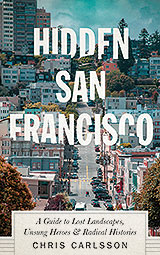
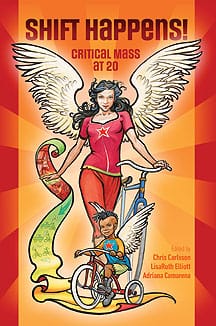
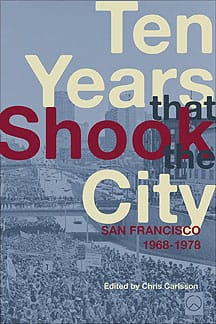
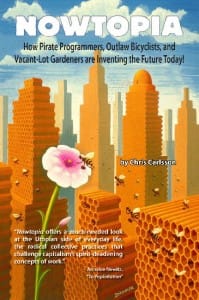
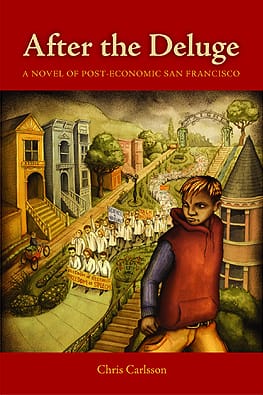
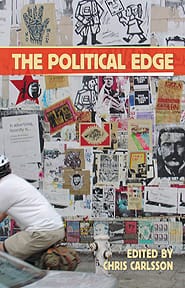
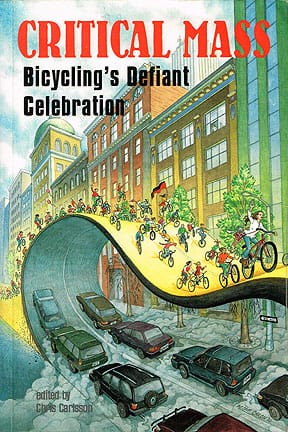
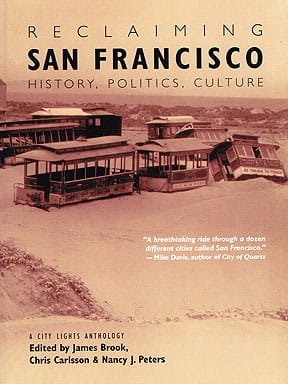
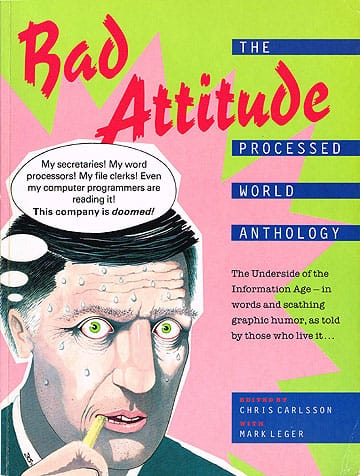

“at least these efforts do a fine job of producing temporary side effects of self-congratulatory euphoria.”
the image of tiny bandages on a cracked and leaking dam comes to mind when i think about the concepts of green capitalism. though i participate in that capitalist subculture, i choose to NOT CONSUME over being a green consumer.
didn’t go to Greenfest this year but have been overwhelmed by the buy-me upsale of past events. Just like most of the subculture festivals I’ve been to, Greenfest attracts the same folks who make a living being green.
when you gotta pay the bills in this short lifetime, i have problems complaining about that. but they’re kidding themselves if they think they’re improving the future.
if only these people focused on real alternative solutions that work outside the profit-driven system. think of the potential!
Worth reading: The Market for Virtue by David Vogel, which essentially tears apart the same happy-faced “Corporate Social Responsibility” that you decry. He makes a pretty good social-scientific case that CSR, as it is known, is good at accomplishing some limited improvements, but that if you want to make a real difference, you need good old-fashioned regulation. Which is not a message that biz-school types normally like to hear, and is therefore not so vigorously repeated by the amplifiers of the status quo.